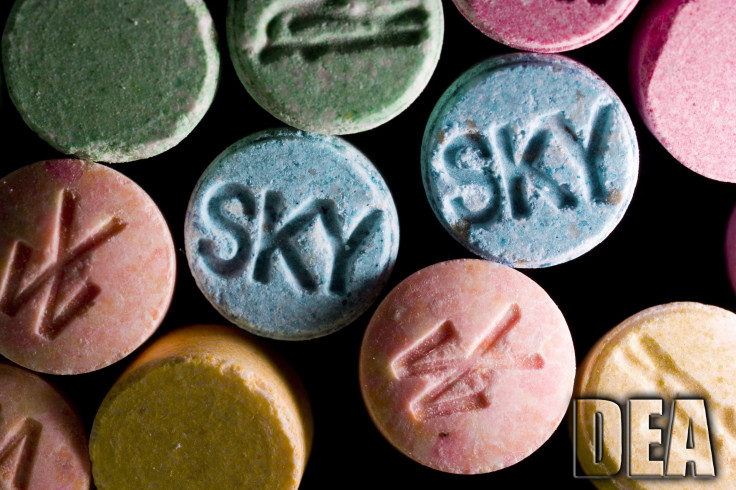MDMA Will Be Used To Treat Addiction To Alcohol In New Clinical Trial
A new study will use the illegal drug MDMA, colloquially known as Ecstasy, in an upcoming clinical trial aimed at treating alcoholism and addiction. Scientists in Bristol, England are researching whether administering doses of the drug, coupled with psychotherapy, will help patients to more effectively overcome addiction over traditional methods of treatment. The study will be the first of its kind in studying the potential therapeutic effects of the drug in treating addiction to alcohol.
The Guardian reported Friday that after being granted ethical approval for the study several weeks ago, scientists at the Imperial College London planned to move forward with administering the first dose of MDMA “within the next two months.” The hospital is reportedly still awaiting the arrival of the drug, which underwent an extensive testing process to ensure it was 99.99 percent pure.
Read: Stanford Researchers Call For A ‘Rigorous Scientific Exploration’ Of MDMA’s Effects
“We know that MDMA works really well in helping people who have suffered trauma and it helps to build empathy,” Ben Sessa, a clinical psychiatrist on the trial and senior research fellow at Imperial College London, told the Guardian. “Many of my patients who are alcoholics have suffered some sort of trauma in their past and this plays a role in their addiction.”
The clinical trial will involve 20 patients with heavy drinking habits, which the Guardian described as “typically consuming the equivalent of five bottles of wine a day.” All of the trial’s patients, who were recruited through the recreational drug and alcohol services in Bristol, suffered recurring relapses and failed to see results with conventional treatment methods for alcoholism.
“3,4-methylenedioxymethamphetamine is a remarkable substance,” wrote Sessa on his website. “Forget what you know about the popular use of this compound in the context of the recreational drug ecstasy (whatever that is these days). MDMA is a medical drug that started [its] life in the clinical setting. It has a unique receptor profile that makes this drug, when combined in a supervised clinical setting with experienced psychotherapists, the perfect tool to enhance trauma-focused psychotherapy.”
He continued, “MDMA provides exactly the right blend of subjective psychological effects to safely and gently hold the PTSD sufferer; providing a secure platform of containment in which they can reflect upon and eventually resolve their long-standing emotional issues.”
And Sessa might be on to something, as the drug has been used in trials to treat a number of other disorders in the past. The Food and Drug Administration (FDA) in November approved MDMA’s use in Phase 3 clinical trials examining its effectiveness in treating post-traumatic stress disorder (PTSD) in patients who have not had success with other forms of therapy. The New York Times reported at the time that the clinical trials could be the last step before the drug is potentially approved as a prescription medication.
Read: MDMA And Psychedelics For Free? Researchers To Use These Drugs For Therapy, Not Tripping
The Times also pointed to a study published in 2012 that found that two-thirds of patients who were administered MDMA under the guidance of a professional no longer met the criteria for a PTSD diagnosis by the end of the program. None of the patients who participated in the study reported any harm in doing so, and researchers observed a minimal risk of dependency where the drug was being administered professionally. One participant wrote that the MDMA “therapy made it possible for me to live.”
“The data we obtained about illicit drug use from [a patient questionnaire] supports the hypothesis that MDMA can be administered in a clinical setting with minimal risk that the subjects will subsequently seek out and self-administer ‘street ecstasy,’ or become dependent on the drug,” researchers found, according to the study. “This is consistent with the comments from many study subjects, who expressed the strong opinion that the therapeutic setting and close follow-up were essential elements of the treatment, and they did not think MDMA should be used without this level of clinical monitoring and therapeutic support.”

© Copyright IBTimes 2024. All rights reserved.











